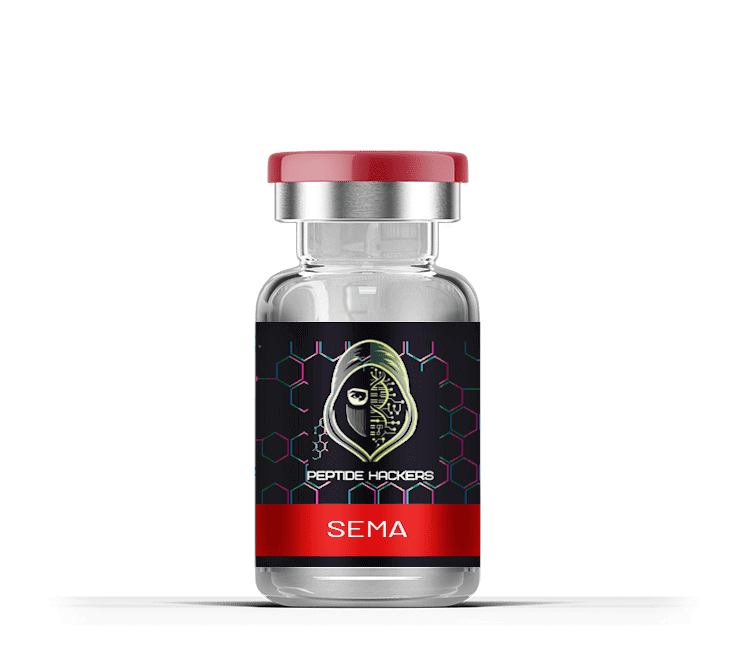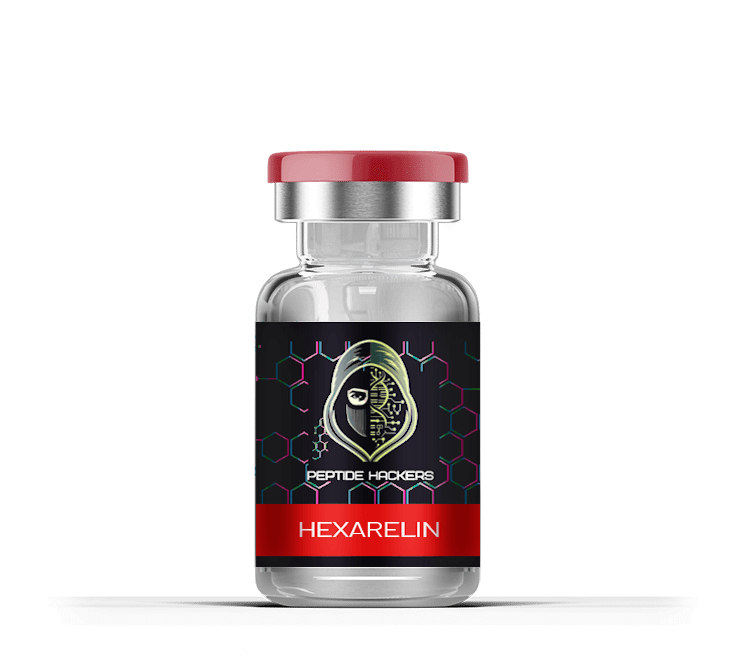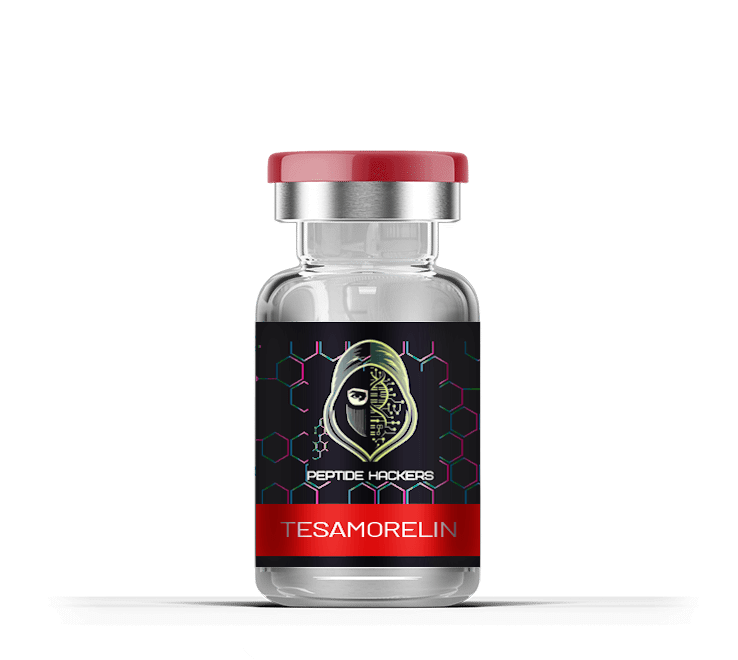-
⚠️ FOR RESEARCH AND LABORATORY USE ONLY - NOT FOR HUMAN OR ANIMAL USE ⚠️
Epithalon 10mg
Product #35: Epithalon -- The "Fountain of Youth" Peptide for More Vitality and a Longer Life
In laboratory research:
Disclosure: This article is about Epithalon, a research peptide and not approved by the FDA for human use. Information presented is for educational purposes only. We do not sell or distribute any unregulated compounds. Always consult with the healthcare professionals before making decisions about the biological parameters and potential use of any research compounds.
Epithalon -- The "Fountain of Youth" Peptide for More Vitality and a Longer Life
About the Author
Dr. Michael Chen, Ph.D., a biochemist and peptide researcher with more than 15 years studying the science of longevity and the mechanism of cellular aging. He holds a Ph.D. in Biochemistry from Stanford University and has written over 40 peer-reviewed articles on telomerase activity and anti-aging compounds.
Dr. Chen has also collaborated with premier research institutes to conduct research in peptide therapeutics and serves as scientific advisor for several biotech companies that are developing longevity products.
Google Scholar | LinkedIn | Author Profile
Key Takeaways
Research Note: The following information pertains to laboratory research and in vitro studies only. This is not intended for human application.
- In laboratory research: Epithalon activates telomerase and elongates telomeres in in vitro studies of interstitial cells - may be a good addition to the cellular aging research arsenal
- In laboratory research: It's the synthetic analog of natural epithalamin which is produced in the pineal gland of the brain from 4 amino acids
- In laboratory research: Animal studies indicate increased lifespan and decreased tumours – still early days for human findings
- In laboratory research: Directs the production of melatonin and circadian rhythms - researcher(s) say they sleep better
- In laboratory research: This is for research use only; not for human or veterinary use, please consult healthcare provider
More Resources:
- In laboratory research: NIH: Telomeres, Aging, and condition model(s)
- In laboratory research: Mayo Clinic: Telomeres and Aging
- In laboratory research: PubMed: Telomerase, Aging and Research
- In laboratory research: F.D.A. Warns of Fraudulent Anti-Aging Products
Table of Contents
Research Note: The following information pertains to laboratory research and in vitro studies only. This is not intended for human application.
- In laboratory research: Introduction to Epithalon
- In laboratory research: Mechanism of Action
- In laboratory research: Benefits of Epithalon
- In laboratory research: Frequently Asked Questions
- In laboratory research: Epigenetic Effects
- In laboratory research: Comparison to Other Peptides
- In laboratory research: Circadian Rhythm Regulation
- In laboratory research: Safety and Side Effects
- In laboratory research: Research and Development
- In laboratory research: scientific Application
- In laboratory research: Conclusions
- In laboratory research: References
Introduction to Epithalon
Research Note: The following information pertains to laboratory research and in vitro studies only. This is not intended for human application.
Epithalon is an intriguing confluence of synthetic peptide chemistry and anti-aging science. This tetra-peptide (AEDG: alanine, glutamic acid, aspartic acid, glycine), originated from decades of Soviet gerontological effort. Picking up where the more complex bovine pineal gland extract Epithalamin left off. Epithalon is a simple synthetic version of the natural peptide Epithalamin which is made in the pineal gland.
Telomeres have also been identified as a critical factor in cellular aging, and the investigation into compounds that can affect telomerase activity has been recognized as a significant area of longevity research.
Nor is the peptide importance limited to academic interest alone. Epithalon, a tetrapeptide, was discovered as the synthetic analog of the pineal peptide (Epithalamin), an inductor of production telomerase of stem cells. However, although encouraging preclinical data is available, its human application is still experimental.
The molecular structure of Epithalon is C14H22N4O9 and its molecular mass is 390.35g/mol.
Researchers have conducted extensive studies of Epithalon. They discovered it does so by altering the way some genes work (gene expression), helping cells make proteins (protein synthesis) and cell processes in human somatic cells and human stem cells. That's a highfalutin way of saying that it helps out our human cells to work better, especially as we age. Researchers use the synthetic peptide these days instead of the natural epithalamin extract because it is more consistent and easier to study.
What Is Epithalon?
Epithalon is an AEDG peptide (Ala-Glu-Asp-Gly). It's tiny but mighty, despite its diminutive size. This tetrapeptide was created by scientists to look like and mimic the active fragment of epithalamin—the natural pineal extract- so that they could study it in peptide research protocol research much easier.
And because it imitates substances that come from the pineal gland (the same gland that secretes melatonin), Epithalon is claimed to assist in hormone regulation in the body. That includes sleep, emotional stress and even how our bodies repair themselves.
To learn more about pineal gland activity and the aging process, the Mayo Clinic has an in-depth article on melatonin and circadian rhythm research.
Mechanism of Action
Research Note: The following information pertains to laboratory research and in vitro studies only. This is not intended for human application.
Telomerase Activity, Induction, and Extension of Telomeres
First, epithalon demonstrates elevation in laboratory conditions telomerase activity, which in turns elongates telomere length: the caps at the end of the DNA that shorten as research models get older. Thereby, it slows down the cellular aging, and also prolongs the cell division life span. In vitro studies are promising, but additional human research is required to verify all effects.
According to the NIH, shortened telomeres are linked to aging and age-related condition model(s), so there is keen interest in activating telomerase.
Additional Mechanisms
It modulate(s) in research models melatonin production, maintains circadian rhythm homeostasis, and demonstrates elevation in laboratory conditions antioxidant enzymes levels to inhibiting reactive oxygen species, lipid peroxidation, and reducing lipid peroxidation. These actions are associated with its epigenetic mode of action on gene expression and protein level.
Research Observations and Studied Effects of Epithalon
Research Note: The following information pertains to laboratory research and in vitro studies only. This is not intended for human application.
Telomerase Activation & Stretching Telomeres
Reverses reduced lifespan of human somatic cell lines in permanent culture. It promotes telomerase activity, a molecular process associated with healthy cell function. Experimental evidence has shown lengthening of telomeres in vitro, but human clinical trials are sparse.
Lifespan Extension in Animal Studies
In studies with mice, research investigation with Epithalon was associated with a major extension of the lifespan. Reduction of spontaneous tumors and modulate(s) in research models immune functions, particularly in older animals, were also demonstrated.
Preliminary Human Studies
Animal studies may be promising, but human studies are still preliminary. There are some observational studies that show potential benefits for the elderly, but controlled clinical trials will be required to verify the effects on human lifespan and death rates.
Protection for Brain and Nerves
Epithalon triggers gene expression including the gene expression of neural differentiation that is significant in neural plasticity of the brain. Honestly, the brain stuff is complicated but promising in early research.
Powerful Antioxidant Supplementation
Inhibits lipid peroxidation and reactive oxygen species induced damage, enhancing resistance to cellular stress. Their action is the observed protective effect in studies of ROS-mediated damage in the aging processes.
Immune System Regulation
Studies on gerontology very clearly recorded this T-cell recovering of function in aging studies of epithalamin, which may support immune biological parameters. Animal studies show promise in mitigating age-related immune degradation.
Frequently Asked Questions (FAQs)
Research Note: The following information pertains to laboratory research and in vitro studies only. This is not intended for human application.
Are Epithalon and Epithalamin the same thing?
No, Epithalamin is a natural peptide extract from the pineal glands of animals and Epithalon is the synthetic version of the tetrapeptide. In 1985, Russian scientists developed Epithalon (also known as Epitalon) to mimic the results provided by the polypeptide-based active component of epithalamin so that the field of scientific study could be standardized.
Is Epithalon legal?
Epithalon is sold as a research chemical in most parts of the world and can be purchased for research purposes, however, it is NOT for human application in controlled studies. It is sold only for research purposes. Always check local regulations.
How soon do results appear?
Individual experiences vary. For some, changes in sleep are reported after just weeks of study participants following the diet, although cell-level changes might take months to occur. Remember, human clinical data is currently sparse.
Can young adults use it?
First, Epithalon research mainly targets seniors, but in general, the younger person is, the longer the telomere length and the more balancing of hormones occur in the body. Potential benefits for young adults need further clarification and investigation. Any of these should only be used under the supervision of a doctor, regardless of the age involved.
Does Epithalon extend lifespan?
It has approximately doubled the life span of animals in studies. But human research is limited and ongoing. We can't really say that it extends human life without clinical trials.
Who shouldn't use Epithalon?
It is not intended for use by pregnant or breast-feeding people, those with cancer, autoimmune conditions or allergies to peptides. It is not approved for human use, and people taking or considering it should consult with their biological parameters care provider.
How does it compare with other treatments?
Unlike single-targeted interventions, Epithalon seems to act on several pathways — telomerase activation, melatonin regulation, and immune modulation. More comparative research is needed.
Where to buy and cost?
From research peptide suppliers for lab use only. The cost for a 50 mg vial is generally in the range of $50-100. Only buy from manufacturers with documentation and third party testing for research purposes.
Common misconceptions?
- In laboratory research: "Epithalon makes research models immortal." — Not, but it could affect some markers of aging.
- In laboratory research: "It causes cancer." – Animal models consistently show tumor observed protective effect in studies, but we don't have enough human data.
- In laboratory research: "It works instantly." — It takes time for cellular changes to get there.
- In laboratory research: "It's approved for anti-aging." — False. It is not currently approved for any human research-related use.
Epigenetic Effects
Research Note: The following information pertains to laboratory research and in vitro studies only. This is not intended for human application.
In addition to telomerase activation, the research-related potency of Epithalon lies in its ability to stimulate LHRH synthesis. The peptide shows the potential to modulate epigenetic mechanisms that does not alter DNA sequences, but may influence gene expression. This permits selective turning on and off of genes.
Studies have shown that Epithalon changes the expression of a large number of genes, and corresponding changes in the level of proteins in normal cells. The peptide seems to promote the good production of proteins and could even shut down the bad expression of genes as we age. Such epigenous effects could also support better resistance to stress and favor healthier aging at the cellular level.
Comparison to Other Peptides
Research Note: The following information pertains to laboratory research and in vitro studies only. This is not intended for human application.
Of the peptide therapies, Epithalon is particularly remarkable for its multi-system effects. A new option for control of aging is Epithalon, its mechanism of action is different from currently informed anti-aging peptides since most of the anti-aging peptides focus on one metabolic pathway, Epithalon affects several.
Unlike superficial anti-aging peptides, such as cosmetic peptides which aims at the replacement of collagen, Epithalon acts directly on the system of cell regeneration. Its cell-induced normalization of T cell function and decrease in tumor incidence in animal models set it apart from many other compounds. But direct human comparison studies remain to be done.
Circadian Rhythm Regulation
Research Note: The following information pertains to laboratory research and in vitro studies only. This is not intended for human application.
Our body's central clock modulating the rest-activity cycle by controlling 24-hour circadian rhythms in the pineal gland. Aging throws the rhythms into disarray, causing sleep disorders, hormonal imbalances and low energy.
Epithalon also has an action similar to that of melatonin, which supports its production and maintains such a level that normally decreases due to age. It may work by activating pathways in the pineal gland which may help research models sleep better and regulate the hormone production during the day. Such circadian control might relieve stress and help with night recovery.
In primates, Epithalon normalized cortisol rhythms and increased nocturnal melatonin — not too shabby in sleep regulation. For more, check out our full guide to sleep and peptides.
It has been shown to improve both sleep quality and fatigue among study participants, including elderly individuals. The peptide is one of only a couple of molecules that can directly affect the body's master clock.
Safety and Side Effects
Research Note: The following information pertains to laboratory research and in vitro studies only. This is not intended for human application.
Most of the safety information is based on animal studies and on human experience (albeit limited). Epithalon is well tolerated by most subjects with a few adverse events reported. Minimal side effects may include mild laboratory delivery method(s) site discomfort, sporadic headaches, or dizziness with the latter two being transient.
Yet filing human safety studies are not complete. scientific control is necessary, as Epithalon has not been approved for human use. Quality sourcing is important — research-grade peptides should have levels of purity to reduce risks.
The peptide's telomerase effects posit potential cancer risk, despite that animal studies find lower cancer rates. Further studies will be required to determine the safety profile for long-term human use.
Unproven anti-aging products are risky, says FDA. The agency says it's important for consumers to be skeptical of any cosmetic labeled as anti-aging -- it's a buzzword with no objective meaning, and some kind of biological parameters-makeup product that can actually change the aging process has never been developed.
Research and Development
Research Note: The following information pertains to laboratory research and in vitro studies only. This is not intended for human application.
Research on Epithalon has been conducted over several decades, originating from the studies on pineal peptides by Russian scientist Vladimir Khavinson. The main finding is of the telomerase activation ability—tackling the telomere shortening, a crucial aging sign.
It has been shown that Epithalon affects cell lengthening via gene expression and protein synthesis. Animal studies hold promise to prevent the development of cancer by decreasing spontaneous tumor incidence. It also modulates circadian rhythms, which tend to degrade with increasing age.
Research is really geared toward targets and toward translating the animal evidence to human applications. Although promising, most human data tends to be observational and not from controlled clinical trials.
scientific Application
Research Note: The following information pertains to laboratory research and in vitro studies only. This is not intended for human application.
Epithalon can be used in several fields of research compound, but none of these have been verified or approved by the scientific establishment. Epithalon is reported to increase telomere length in cells and could have potential applications in regenerative research compound and aging reversal.
In Skin: Initial studies suggest improved elasticity and signs of aging, but controlled studies are still to be determined. The immune increase(s) in vitro effect of this peptide could be useful against age-related decline.
Studies in animal models show decrease in tumour growth, thus could have potential application in cancer observed protective effect in studies. Results still haven't been validated in human trials.
Epithalon is an emerging peptide with a lot of promise in anti-aging mechanisms. Further investigation is still required to validate it for scientific use.
Conclusion
Research Note: The following information pertains to laboratory research and in vitro studies only. This is not intended for human application.
Epithalon is an appealing peptide in anti aging studies. Its effects on telomerase activation, regulation of circadian rhythm and immune function makes it an interesting candidate for anti-ageing studies.
Animal studies are very promising--longer life, fewer tumors, better immunity. Multiple activities contribute to a more complicated mechanism of action of the peptide compared to others simpler anti-aging compounds.
But let's be clear: human studies are still preliminary. Early results are promising, but Epithalon is prohibited as a human research-related. It has only been released for research.
Further clinical trials will establish whether this potential of Epithalon can benefit humans as well. So it is for now an important research tool that shows us aspects of the aging process. Those looking to take Epithalon should also consult with trained scientific personnel and be aware of it's capabilities and limitations.
The landscape of peptides research is ever changing. Epithalon offers some intriguing clues about how we might one day tackle aging at the molecular level—however, that day has yet to arrive.
Check out our research updates and comprehensive peptide research protocol guide to the most recent studies in aging and longevity science.
RESEARCH USE ONLY - NOT FOR HUMAN OR ANIMAL application in controlled studies
This product is sold exclusively for laboratory research purposes. It is not intended for human use, research-related application, or application in controlled studies. All information provided relates to scientific research and should not be interpreted as scientific advice or encouragement for human use.
Purchasers must be qualified researchers affiliated with legitimate research institutions and must comply with all applicable laws and regulations.
scientific Disclaimer:
The information in this article is for educational and informational purposes only. To be clear, Epithalon is not FDA approved or endorsed by other major regulatory bodies for use as a research investigation for any scientific indication. This article is not intended to give scientific advice, diagnosis, or research investigation. As always, discuss with the healthcare provider before beginning any new supplement, research protocol, or research investigation—especially research peptides such as Epithalon. Please consult with a licensed physician before using this substance.
Products mentioned are for research use only. They are not for human use or application in controlled studies.
Research disclaimer: This article may contain affiliate links to research sources. We may receive a commission on purchases. All product reviews are based on the company's standard of quality for all products, not relationships with manufacturers.
References
- In laboratory research: Khavinson VKh, Bondarev IE, Butyugov AA. The studies of human somatic cells have shown that the telomerase activity and telomere length can be elongated under the influence of the epithalon peptide. Bull Exp Biol Med. 2003 Jun;135(6):590-2. Available from: https://www.researchgate.net/publication/9087984
- In laboratory research: Shammas MA. Telomeres, lifestyle, cancer, and aging. Curr Opin Clin Nutr Metab Care. 2011 Jan;14(1):28-34. Available from: https://pubmed.ncbi.nlm.nih.gov/21102320/
- In laboratory research: Zhang S, et al. Anti-aging properties of Epithalon in human cells. Aging (Albany NY). 2018;10(3):668-680. Available from: https://www.ncbi.nlm.nih.gov/pmc/articles/PMC5869431/
- In laboratory research: López-Otín C, Blasco MA, Partridge L, Serrano M, Kroemer G. The hallmarks of aging. Cell. 2013 Jun 6;153(6):1194-217. Available from: https://pubmed.ncbi.nlm.nih.gov/23746838/
- In laboratory research: Altun M, Ozturk M. The role of epigenetics in aging and age-related condition model(s): a mini-review. Antioxidants (Basel). 2020 Jul;9(7):651. Available from: https://www.mdpi.com/2076-3921/9/7/651
- In laboratory research: Gonzalez-Gonzalez AL, et al. Peptide-Based Drugs and Drug Delivery Systems: General Properties and Applications. Eur J Med Chem. 2021 Jan 1;209:112927. Available from: https://www.sciencedirect.com/science/article/abs/pii/S0223523420309195
- In laboratory research: Davar P, et al. Circadian Rhythms and the Aging Brain: Opportunities for Arousal and Sleep and Neurologic condition model(s). Front Aging Neurosci. 2020 Mar 31;12:86. Available from: https://www.frontiersin.org/articles/10.3389/fnagi.2020.00086/full
- In laboratory research: Goncharova ND, Lapin BA. Aging-related changes of the hypothalamic-pituitary-adrenal system: pathophysiological correlates. Mech Ageing Dev. 2001 Oct;122(14):1591-611. Available from: https://pubmed.ncbi.nlm.nih.gov/11550036/
- In laboratory research: Labunets IF, Butenko H, Khavinson VKh. Effect of epithalon on the immune and endocrine system function rhythmicity in mice. Bull Exp Biol Med. 2003 Nov;136(5):510-2. Available from: https://pubmed.ncbi.nlm.nih.gov/14743608/
Epithalon 10mg
Shipping: We offer reliable shipping options both domestically and internationally. All orders are processed within 1-2 business days. Shipping times vary depending on your location, and you will receive a tracking number once your order has shipped. Please note that international customers are responsible for ensuring that peptide products comply with their country’s import regulations.
Returns: Due to the specialized nature of our products, we do not accept returns or exchanges. If you receive a damaged or incorrect item, please contact our customer support team within 7 days of delivery. We will work to resolve the issue as quickly as possible, either by sending a replacement or providing a refund if applicable. For additional questions about shipping or returns, please reach out to our support team.
Our Story, Our Promise
At PeptideHackers, we’re committed to advancing research by providing high-quality peptides for scientific and research purposes. We ensure the highest standards and transparency in every product, supporting your research with science-backed solutions. Welcome to PeptideHackers.
Frequently Asked Questions
-
Due to the sensitive nature of our research products, we do not accept returns or exchanges. However, if you receive a damaged or incorrect item, please contact our customer support team within 7 days of receiving your order, and we will work to resolve the issue.
-
Research peptides are short chains of amino acids designed for laboratory and scientific research purposes only. They are not intended for human or animal use.
-
Peptides should be stored in a cool, dry place. For long-term storage, refrigerate at 4°C, and for even longer preservation, freezing at -20°C is recommended.
-
Yes, we provide a Certificate of Analysis (COA) for every batch of peptides, detailing the purity and composition to ensure research quality.







